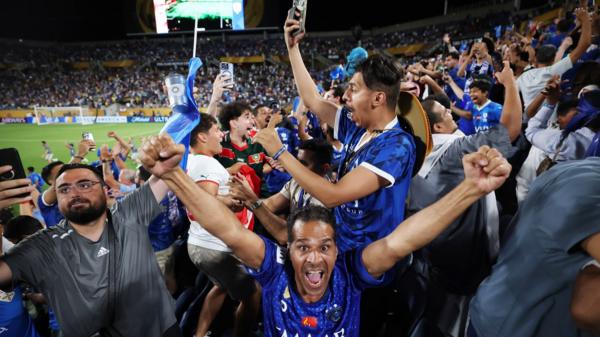Al-Hilal Triumphs Over Man City Amid Concerning Signs for the Blues




The football world witnessed an astonishing upset when Saudi Arabian club Al-Hilal toppled Premier League giants Manchester City in the FIFA Club World Cup. Placing the country on the global football map, this victory is a clear indication of Saudi Arabia's intent and investment aimed at elevating their status in the world of football.
In what could be likened to scaling Mount Everest without oxygen, as described by their jubilant manager, Al-Hilal's triumph is not just a standalone miracle but the result of a meticulously laid out plan fueled by massive financial backing and strategic ambition. Saudi Arabia's vision extends beyond just competing; it is about winning on the grand stages.
This isn't the first stirring of football ambition we've seen from Saudi Arabia. In recent years, the kingdom has pumped billions of dollars into the sport at all levels – from grassroots programs to high-profile international competitions. This financial surge is part of Saudi Arabia’s broader strategy, Vision 2030, led by Mohammed bin Salman. The plan does not just aim at diversifying the economy but also at boosting the country's international cultural and sporting prestige.
However, it's not just about money raining down on the sport. The Saudis have been strategic in how they invest, focusing on developing local talent and infrastructure, as well as importing expertise in various facets of the game, from coaches to players. This blend of local potential and international experience was evident as Al-Hilal navigated their path through the Club World Cup.
The Saudi Pro League has been particularly transformative, increasingly becoming a magnet for international stars who are in the twilight but still brilliant phases of their careers, such as Cristiano Ronaldo joining Al Nassr. This influx of stars provides not just skills on the pitch but valuable experiences and a competitive edge that local players can learn from. Such interactions are crucial as they raise the overall quality and competitiveness of the league and, by extension, the national team.
Manchester City, known for their dominance in the English Premier League and substantial backing by Abu Dhabi's wealth, was considered the overwhelming favorite for the match. Their defeat at the hands of Al-Hilal underscores not just a single game of football but signaling a potential shift in global football dynamics where wealth combined with a tailored strategic approach can challenge and defeat established European powerhouses.
This win should further inspire Al-Hilal and similar clubs throughout Saudi Arabia and the Gulf region, as it shows what is possible on the world stage. Additionally, it paves the way for heightened interest in the Saudi Pro League, which could see an increase in viewership, sponsorship, and a significant rise in its commercial value.
But the implications extend beyond just the commerce of the sport. This victory will likely galvanize young athletes across Saudi Arabia, who now have local heroes to emulate and a clear pathway to the sport’s highest levels. For a young Saudi boy or girl watching, the dream of playing against top European clubs isn't just a fantasy; it’s a visible, viable reality.
It’s an exciting time for football in Saudi Arabia as the country continues to build and define its unique footprint in the sport. Al-Hilal’s win against Manchester City is a testament to Saudi Arabia's football aspirations and a preview of what might be a rising force in international football. It heralds a new era where the footballing world could see more surprises thrown from parts of the globe traditionally underestimated in this beloved sport.